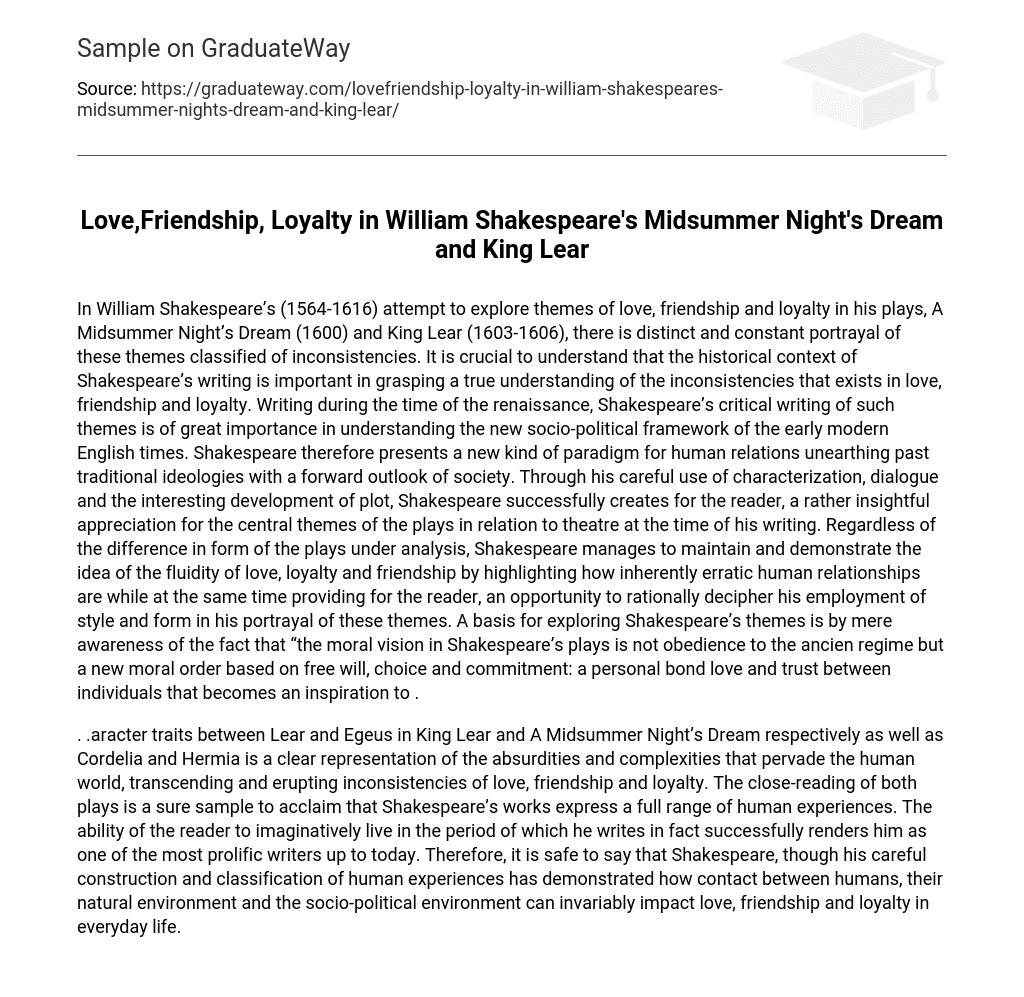William Shakespeare (1564-1616) explores the themes of love, friendship, and loyalty in his plays A Midsummer Night’s Dream (1600) and King Lear (1603-1606), presenting them with inconsistencies that can be better understood by considering the historical context in which he wrote. During the Renaissance, Shakespeare’s critical examination of these themes was significant for understanding the new socio-political framework of early modern England. He challenges traditional ideologies and looks towards a more progressive society by offering a fresh perspective on human relationships through characterization, dialogue, and plot development. By highlighting the unpredictable nature of human relationships, Shakespeare effectively demonstrates that love, loyalty, and friendship are fluid despite analyzing different forms of the plays. Furthermore, he allows readers to interpret his use of style and form in portraying these themes. One way to explore Shakespeare’s themes is to recognize that his plays do not advocate blind obedience to traditional authorities but instead promote a new moral order emphasizing free will, choice, and commitment. The foundation of this new ethical system lies in the intimate connections of love and trust among individuals as a source of motivation.
The character traits of Lear in King Lear and Egeus in A Midsummer Night’s Dream, along with Cordelia and Hermia, exemplify the absurdities and complexities that exist in the human world. These traits transcend and expose inconsistencies in love, friendship, and loyalty. Through a close analysis of both plays, it becomes evident that Shakespeare’s works encompass the entire spectrum of human experiences. Shakespeare’s ability to transport readers into the time period in which he writes demonstrates his exceptional talent as a writer. It is clear that Shakespeare’s meticulous portrayal of human experiences showcases how interactions between humans, their natural environment, and the socio-political environment can significantly impact love, friendship, and loyalty in everyday life.





